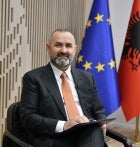Breadcrumb
Stories
Topic
- Ending violence against women and girls (72)
- Gender equality and women’s empowerment (45)
- Anti-violence interventions (41)
- Gender discrimination (38)
- Gender equality and inequality (38)
- Domestic violence/interpersonal violence (36)
- Access to justice and legal protection (33)
- Legal assistance (29)
- Laws, legislation (26)
- Gender-responsive budgeting (24)
- Primary prevention (24)
- Sexual harassment (24)
- Feminicide/femicide (23)
- Service delivery (23)
- Economic empowerment (22)
- Rape/sexual assault (21)
- Employment (20)
- Shelters (20)
- Rural women (19)
- Entrepreneurship (18)
- Decision-making (16)
- Youth (16)
- Gender power relations (15)
- Women’s rights (15)
- COVID-19 (14)
- Financing for gender equality (13)
- Gender mainstreaming (13)
- Civil society (12)
- Gender, culture and society (12)
- Men and boys (masculinity) (12)
- Political empowerment (12)
- Access to basic services (11)
- Adolescents (11)
- Businesses and foundations (11)
- Girls (11)
- Human rights (11)
- UNiTE campaign (11)
- Beijing Platform for Action (10)
- Civil society participation (10)
- Peace and security (10)
- Safe Cities and Safe Public Spaces (10)
- Training (10)
- Women with disabilities (10)
- Convention on the Elimination of All Forms of Discrimination against Women (CEDAW) (9)
- Financial resources (9)
- Information and communications technology (ICT) (9)
- Leadership and political participation (9)
- National planning (9)
- Partnerships (9)
- Gender stereotypes (8)
- Governance (8)
- Innovation and technology (8)
- Institutional mechanisms (8)
- Peacebuilding (8)
- Social protection (8)
- Women farmers (8)
- Citizen engagement (7)
- Gender statistics (7)
- Generation Equality (7)
- Government contributors (7)
- Productive resources (7)
- Religion (7)
- Science and technology for development (7)
- Sports (7)
- Trafficking/sexual exploitation (7)
- Women’s movements (7)
- 2030 Agenda for Sustainable Development (6)
- Child marriage (6)
- Communications and media (6)
- Electoral systems and processes (6)
- Lesbian, gay, bisexual, transgender, intersex (LGBT) rights (6)
- Markets (6)
- Political violence (6)
- Sex-disaggregated data (6)
- Sustainable Development Goals (SDGs) (6)
- Unpaid work (6)
- Accountability (5)
- Gender data production and collection (5)
- Governance and national planning (5)
- Rural development (5)
- Traditional media (5)
- Constitutions and legal reform (4)
- Gender data gaps (4)
- Gender data use and accessibility (4)
- Gender wage gap (4)
- Health (4)
- Intergovernmental processes (4)
- Land and property (4)
- New media (4)
- Poverty (4)
- Public administration (4)
- Rule of law (4)
- Schooling (4)
- Accountability in the UN system (3)
- Climate change (3)
- Crisis response and recovery (3)
- Education (3)
- Environmental protection (3)
- Gender equality indicators (3)
- Health care services (3)
- Inheritance rights (3)
- Living conditions (3)
- Media leadership (3)
- National mechanisms (3)
- National statistical systems (3)
- Parliamentary development (3)
- UN Security Council resolution 1325 (3)
- UN system coordination (3)
- Capacity development (2)
- Coordination, knowledge management (2)
- Disaster risk reduction (2)
- Food security (2)
- Fundamental freedoms (2)
- Fund for Gender Equality (2)
- Harmful practices (2)
- Humanitarian action (2)
- Human rights–based approach (2)
- Macroeconomic policies (2)
- Monitoring and evaluation (2)
- Planning and monitoring (2)
- Sexual and reproductive health and rights (2)
- UN Security Council resolutions (2)
- Urban development (2)
- Åsa Regnér, Deputy Executive Director for Policy, Programme, Civil Society and Intergovernmental Support (1)
- Children’s rights (1)
- Commission on the Status of Women (1)
- Executive Director (1)
- Financial and economic crisis (1)
- Green economy (1)
- Literacy (1)
- Local development (1)
- Maternal health (1)
- Migration (1)
- Monitoring, evaluation and reporting (1)
- Peace processes (1)
- Public sector reform (1)
- Sexuality (1)
- Temporary special measures, affirmative action (1)
- UN Trust Fund to End Violence against Women (1)
1 - 20 of 215 Results
Pagination
Date:
Women in Albania are key drivers of social and economic progress, yet they remain underrepresented in political leadership. To bridge this gap, UN Women Albania, with support from the Swedish Government, trained over 130 women and girls across the country, equipping them with the skills and networks needed to step into leadership roles.
Date:
Adivije Hoxha is a dedicated advocate for the rights of persons with disabilities. As the chair of the Association of Para- and Tetraplegics for Durrës, and a former local council candidate, she continues to push for greater representation and equality, inspiring others with her unwavering commitment to change.
Date:
For International Women's Day, UN Women Albania, in partnership with the Albanian Football Federation, UN agencies, and journalists, hosted a mini football tournament as part of the #ForAllWomenAndGirls campaign. Around 40 women and girls participated in an event, turning the football field into a symbol of progress and change.
Date:
UN Women, in partnership with the government, launched a three-year initiative to empower women in rural northern Albania by strengthening governance, promoting economic opportunities, and combating gender-based violence in Shkodër, Bulqizë, Malësi e Madhe, and Dibër.
Date:
As Albania celebrates three decades since the adoption of the Beijing Declaration, the country continues to make strides in gender equality. An inspiring intergenerational dialogue at a recent event brought together key stakeholders from the Ministry of Health and Social Protection, United Nations Albania, the EU Delegation, and other partners, alongside passionate feminist activists from all generations.
Date:
The May 11, 2025, elections are a key moment to strengthen democracy and build on Albania’s progress in women’s political leadership. While the country ranks 44th globally for women in Parliament, sustaining these gains requires ongoing efforts to ensure participation and prevent setbacks.
Date:
Interview with Flutura Xhabija on attending the Fourth World Conference on Women in Beijing in 1995 and how the Beijing Platform for Action remains relevant today.
Date:
In Berat, Albania, Nadire Hyseni’s journey showcases the impact of participatory gender budgeting. With UN Women’s support and Swiss funding, women from marginalized communities are advocating for their needs and influencing local decisions.
Date:
AI is reshaping our world, but biased data can reinforce gender discrimination. From hiring to healthcare, it may amplify inequalities. Expert Zinnya del Villar discusses ethical, inclusive AI solutions with UN Women.
Date:
In Albania, parents and young mothers are shaping their communities through participatory decision-making. With UN Women's support, the "Today for the Future" Community Development Center helps them advocate for their needs and influence public budgets.
Date:
UN Women Albania, in partnership with the Government, civil society, international partners, and UN agencies, marked this year’s 16 Days of Activism Against GBV under the theme #NoExcuse – UNiTE to End Violence Against Women and Girls. Activities included awareness campaigns, exhibitions, an award ceremony, youth initiatives, and private sector collaborations.
Date:
In this interview, Ulsi Manja, Minister of Justice of Albania, highlights the government's commitment to advancing gender equality through the justice system. He discusses the importance of gender-responsive budgeting, ongoing efforts to address the needs of women and girls, and key interventions such as free legal aid, humane conditions in penal institutions, and measures to combat gender-based violence.
Date:
A powerful initiative united sport and advocacy to raise awareness about ending gender-based violence, with cyclists Mejdin Malhani, trainer of the Albanian Cyclist Team, and Bjarke Vodder Nielsen leading the journey and showcasing the strength and resilience needed to tackle this pressing societal issue.
Date:
People's Advocate along with the support of UN Women released a report on the killings of women and girls, as well as femicide, revealing that 32 women were killed between 2021-2023.
Date:
Women and girls with disabilities in Albania are not only faced with physical and structural barriers but also with the often less visible yet pervasive threat of gender-based violence. On the International Day of Persons with Disabilities, they shared their stories of resilience, despite numerous challenges.
Date:
The UN’s November 2024 Flagship Report on Disability and Development calls for accessible services, better data collection, and inclusive policies.
Date:
United Nations Agencies in Albania, alongside government institutions, civil society, and citizens, kick off the 16 days of activism against gender-based violence under the theme #NoExcuse – Unite to End Violence Against Women and Girls.
Date:
Monika Kocaqi has dedicated twenty-five years to preventing gender-based violence (GBV) in Albania and her work is far from over. She has led groundbreaking initiatives, including the early implementation of the Domestic Violence Protection Law, overcoming skepticism and driving systemic change. Monika Kocaqi supported the establishment for the first time of the Coordinated Referral Mechanisms and enhanced the legal knowledge of professionals. She has been at the forefront of initiatives like gender-responsive budgeting to secure vital services for survivors of gender-based violence. Her extensive work includes authoring over forty training manuals, strategies, and research studies on GBV and gender mainstreaming in Albania and beyond.
Date:
More than 40 women entrepreneurs participated in the “Women’s Entrepreneurship EXPO 2024” satellite event, held for the second consecutive year in Tirana, Albania, on November 18-19, 2024.
Date:
Through the UN Joint Programme and UN Women’s intervention, nearly 500 women and children received support with healthcare, legal aid, counseling, vocational training, and housing, resulting in 69 women securing employment and over 250 families receiving rental assistance in Albania.
1 - 20 of 215 Results



















